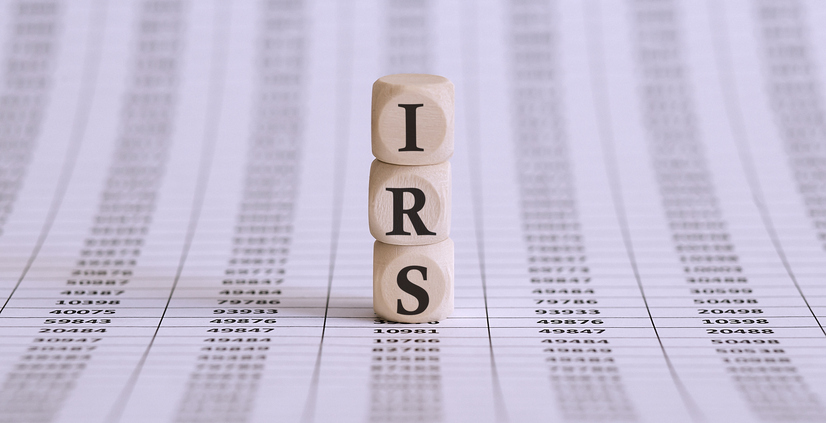The last several weeks have almost felt like the calm before a storm. The economic data has largely been pretty boring, and what else is there to say about the Federal Reserve? Shoot, even with everything going on in the world, the global news cycle almost seems to have hit a pause button. Sure, Ukraine has pushed into Russia’s Kursk region, and the Israelis and Hezbollah have taken it up a notch. No argument.
However, I feel Americans probably had timelier and more accurate information about the Russo-Japanese War back in the day than we have with this one. Further, Israel and Hezbollah, let alone Hamas, have been at each other’s throats for so long, it almost seems like the normal state of affairs rather than news.
Of course, I have the luxury of making such cavalier comments from the safety of my office in the middle of a state a lot of people couldn’t find on a map.
But what about the U.S. elections, Norris? Right now, the outcome is anything but clear, and you don’t think that is interesting, let alone important? It is, but even with Kamala Harris’ ascension to the top of the Democratic ticket, the story and strategy really haven’t changed. The blue nominee just has to appear competent enough for long enough to let Donald Trump beat himself, or so the thought process apparently goes.
As for policy? When you ask the average person on the street about what is important to them, how many mention capital gains tax policy? Corporate tax rates? Estate tax law and the personal exemption? Taxing unrealized capital gains? Doing away with the step-up in cost basis upon death? You know, those things with which people who do what I do for a living have to contend?
Arcane stuff like that doesn’t make for an engaging dinner conversation in most households. It doesn’t directly apply to the lunch pail crowd, either. Why does someone who doesn’t have any wealth care about taxation policy geared at the wealthy? Let alone corporations? After all, the bigwigs at a lot of companies sure seem to live pretty high on the hog. You know what? A lot of them do, ridiculously and evenly unfairly so.
What’s more, they will continue to do so no matter what the IRS says, does and thinks.
However, let’s tackle one issue here today, and maybe we can visit some of the others later.
Corporate Taxes
Currently, the nominal Federal corporate tax rate is a flat 21%. One party has said it wants to cut it to as low as 15%, and the other has expressed a desire to increase it to 28%. On its face, to Joe 6-Pack, that probably seems like so much of so what. However, that “so what” has a pretty hefty price tag to it.
Increasing rates from 21% to 28%
- Let’s assume a Company X generates $10 billion per year in revenue, has a 15% pre-tax profit margin and has 1 billion common shares outstanding. Assuming no other taxes or extraordinary items, the company would have a $315 million tax bill at a 21% rate, and $420 million at 28%. Obviously, that is a difference of $105 million, which is surely peanuts to those guys. Am I right?
However, let’s further assume investors put a 25x price/earnings multiple on the company’s stock.
If so, what is the difference in the company’s market capitalization just due to the increase in the corporate tax rate?
- In this example, the math is pretty easy due to all the round numbers and base assumptions. It would be, essentially, the difference in the tax bill multiplied by 25 (or $105 million X 25).
- That would be $2.625 billion, which would represent an 8.9% decline in the original value of the company. Of course, real life isn’t as static and easy as this is.
Still, this is just one company. What if the entire U.S. stock market fell 8.9% due to changes in tax policy alone? Well, as of August 29, 2024, the S&P 500, the most widely recognized U.S. market index, had a combined market capitalization of $46.935 trillion. The link will produce a different value every day. Therefore, an 8.9% decline (actually 8.86%) would represent a, get this, $4.129 trillion erosion in market/societal wealth.
Even if you aren’t Warren Buffett or Gordon Gekko, if you have a 401k plan, an IRA, 403b or participate in a pension plan of some sort, that matters. It is just math.
Thanks to the multiplier effect inherent in U.S. stock prices, all other things being equal, an extremely quick way to make the country poorer is to increase corporate tax rates.
Decreasing rates to 15% from 21%
Conversely, a reduction in the tax rate to 15% from 21% would generate an increase of $3.564 trillion in the market capitalization of the S&P 500. Therefore, the difference in stock market capitalization between cutting the rate to 15% and raising it to 28% is around $7.693 trillion. To put that into perspective, that is slightly larger than the entire Tokyo Stock Exchange.
Of course, this would never happen. No company in the world is just going to sit idly by and watch taxes eat into their earnings. There isn’t a single CEO or CFO who is just going to raise their hands and say: “Okay, guys, you’ve got us. Our investors are just going to have to be happy with less. Easy come and easy go. Tee hee.”
Nope. They are going to figure out a way to either sell, in our little example, an additional $972.2 million worth of whatever it is. Or it will have to slash $145.8 million in costs and hope revenue stays the same. In truth, it will probably do some kind of combination of the two, but cutting expenses is more effective/certain than hoping to increase the topline.
So, what if Company X decides to cut costs by $75 million and work like the dickens to maintain their net profit margins after the tax increase? What can they do? Well, if the average associate at the company makes $55,000/year, it could star by letting go of 1,363 workers. How does that sound? Or it can fire half that number and make up the rest by slashing other costs.
Of course, those savings will come with a cost to vendors, etc. Make no bones about it, someone, somewhere and somehow is going to have to make up the difference in the company’s tax bill. It isn’t a question of IF someone will get the short-end of the stick. It is a question of who.
You know, it is surprising how many people have to pay the price to ensure the bigwigs get what’s coming to them.
In the end, a surprisingly sluggish news cycle has led to this…a roughly 1300 word newsletter on how an increase in corporate taxes has significant negative consequences to the economy and the markets. If you have read it thus far, you will have to admit it really is a sluggish news cycle. Otherwise, you might not have read this missive to the bitter end. Which, congratulations, you just did.
Have a great weekend.
Thank you for your continued support. As always, I hope this newsletter finds you and your family well. May your blessings outweigh your sorrows on this and every day. Also, please be sure to tune into our podcast, , which is available on every platform.

John Norris
Chief Economist
Please note, nothing in this newsletter should be considered or otherwise construed as an offer to buy or sell investment services or securities of any type. Any individual action you might take from reading this newsletter is at your own risk. My opinion, as well as those of our Investment Committee, is subject to change without notice. Finally, the opinions expressed herein are not necessarily those of the rest of the associates and/or shareholders of Oakworth Capital Bank or the official position of the company itself.



